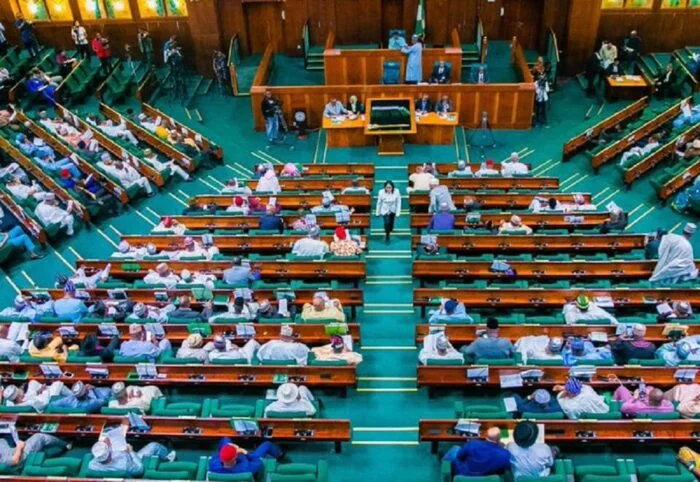A bill seeking the provision of guidelines for the payment of judgment debts owed by the Federal Government and its agencies on Thursday scaled the second reading stage at the House of Representatives.
Titled “A Bill for an Act to Provide Guidelines for the Payment of Judgment Debts Owed by the Federal Government and its agencies and for other related matters thereto,” the proposed legislation was sponsored by the member representing Onuimo/Okigwe/Isiala Mbano Federal Constituency, Imo State, Miriam Onuoha.
Leading the debate on the general principles of the bill, the lawmaker noted that over the years, the country faced increased financial liabilities from judgment debts, adding that however that “These payments have been managed without consistent guidelines, proper documentation, or transparency.”
This, she noted, led to government agencies paying judgment debts on a discretionary basis, without due consideration for the order of judgments, public interest, or the need to respect court orders.
She said, “The current lack of a legal framework in handling these obligations has created room for
negligence and misconduct. Often, the actions of public officers, unchecked by clear consequences, lead to avoidable litigations.
“Therefore, the Judgment Debt (Payment Guidelines) Establishment Bill, 2023 is a necessary response to these challenges. It introduces a structured approach to managing judgment debt payments by the Federal Government and its agencies, ensuring accountability, compliance, and financial discipline.”
Among the objectives of the bill according to the lawmaker include “Establishing guidelines and procedures for the payment of judgment debts by the Federal Government and its agencies; deter negligence and promote professionalism within government agencies, ensuring that officials act responsibly to avoid unnecessary litigation and foster transparency and accountability by mandating that judgment debts are included in the annual budget, subject to the oversight of the National Assembly.”
The All Progressives Congress lawmaker clarified that the bill does not intend to repeal the Sheriff and Civil Processes Act. Instead, she said, “It complements existing legislation by providing specific guidelines tailored to the payment of judgment debts owed by the Federal Government and its agencies.
“This Bill is narrowly focused on ensuring that payments are managed transparently, fairly, and concerning established priorities, without undermining the broader framework of the Sheriff and Civil Processes Act,” she added.
Contributing to the motion, the member representing Shomolu Federal Constituency, Lagos State, Ademorin Kuye sought clarification on the difference between the provisions of the bill and the Sheriff and Civil Processes Act, particularly about the personal responsibility of government officials.
He said, “Let us get the clarification so that the bill does not become superfluous. It appears to me that the bill she is proposing has been taken care of by the Sheriff and Civil Processes Law.
“If an officer of government leaves office and another one comes in, who is going to be held responsible for debt entered into,” he asked.
The duo of Ahmed Jaha and Iduma Igariwey, from Borno and Ebonyi States respectively however urged their colleagues to support the bill, saying more clarifications on the bill would be made at the committee level or during public hearing.
“Let us not terminate this bill at this level. Stakeholders will give further clarifications on areas that are not very clear during the public hearing on the bill,” Mr Jaha said.
On his part, Igariwey said, “Let us allow the bill to go through a second reading so that when we get to the committee level, officials of the Ministry of Justice can provide the needed clarifications.”
Providing further insights, Mrs Onuoha added that the bill would help make public officers sit up and be more accountable.
She added, “Judgment debts have been shielded in secrecy. As a parliament, we have not had the privilege to scrutinise debts-how much is owed, how much is to be paid and all that. This bill will help build inclusivity and public trust.”
Following its adoption, the bill was referred to the House Committee on Justice for further legislative action.
